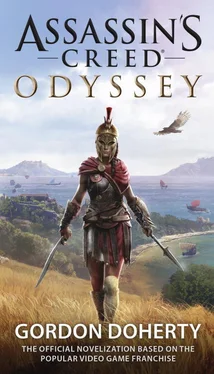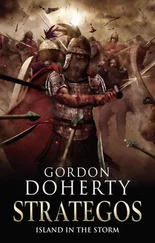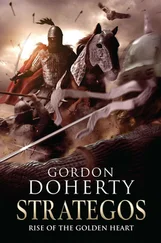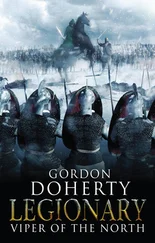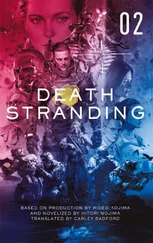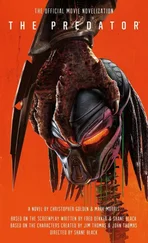“What do you suggest?” Sokrates scoffed. “That we form a brigade armed with shovels and brushes and seize control? We would look ridiculous. Worse, it would make us tyrants.”
“Kleon wrested power by sheer force. It is his way,” argued Aristophanes. “But there are other ways—more refined and lasting—with which to win the hearts and minds of Athens’s people.”
“He’s going to suggest a play,” Sophocles said, his eyelids sliding down in exasperation. “And let me guess: only he is witty enough to compose such a work.”
Aristophanes shot him a sour look. “Nonsense. I’ll let you hold my tablet and fetch me drinks.”
Sophocles exploded in outrage. Sokrates wheeled away from the table with a sigh, only to bump into Alkibiades, who helpfully offered to massage his shoulders and alleviate his stress… then began to nibble on his ear. When Sokrates shrugged him off, exasperated, Alkibiades threw out his hands in innocence. “What? Is it not the purpose of a loved one to exude love?”
Sokrates melted into a throaty chuckle. “So you have been listening to me? Perhaps it is, yes, but not now,” he said, gesturing back to the table.
Kassandra watched, longing for these great minds to produce a jewel of a plan. But days passed, with no resolution. One day, Barnabas came to her side as she watched.
“I feel it too, Misthios. An itch that cannot be scratched by standing here.”
She turned to him. “Even after all the strife you have been through with me, you yearn to travel to Amphipolis?”
“They didn’t tell you, did they? About the Spartan garrison there.”
She frowned. “There are thousands of Spartiates there, I hear. Kleon will gather up nine thousand of his own along the way. He will have a tough fight on his hands. He will not seize the gateway to the north easily.” She thought again of Kleon’s boasts about the Thrakian horde beyond those gates, and mouthed a prayer in support of the Spartans.
Barnabas shook his head. “There are little more than one hundred Spartiates there, and a few allied hoplites.”
“What?”
“Since the disaster at Sphakteria, the ephors refuse to allow the purebred regiments to march to war. To defend Amphipolis, they commissioned just a knot of Spartiates and filled out the ranks with masses of Helots.”
“Helots?” Kassandra gasped. They were effective support skirmishers and baggage handlers. But to make up an army almost entirely of them was madness. “May the Gods be with them. Who leads them?”
“General Brasidas,” Barnabas replied.
She stared.
“He was rescued from the ashes of Sphakteria too. All this time while you were incarcerated, he has led his Helot army around the north, seeking allies, searching for cracks in Kleon’s iron empire.”
She heard the group inside reciting the lines of the play they had concocted in these last days. Euripides stood on a crate, playing the part of Perikles, imperious, solemn, plainspoken. Aristophanes then entered the scene, skipping, waving his hands as if picking flowers, then squealing like a tortured pig. “No, listen to me, listen to me ! Look, there is a dark cave. Come with me, let us leap blindly inside!”
Alkibiades roared with laughter as he sucked on a wineskin. Herodotos clapped. Sophocles beamed with delight, tapping the tablet, reading along with the script as the two acted it out.
“The assembly gathers tomorrow,” said Sokrates, coming over to Kassandra’s side. “This play will show the people Kleon’s cynical ways, and that he is no champion or hero. His reputation will be left hanging in ribbons.”
She noticed his sideways gaze resting on her.
He arched one eyebrow and smiled. “I can see words burning behind your lips. Say what you feel.”
“Destroying his reputation alone is not enough,” she mused. “We cannot merely wound him, for he has the means to wreak a terrible revenge. We must destroy him utterly.”
“Exactly,” Sokrates said, his smile fading.
“Then my part in this affair will be on the stage of battle,” she said, standing straight, looking to Barnabas.
“The Adrestia is ever ready. We await your command, as always, Misthios.” Barnabas half bowed fondly.
A hot wind furrowed Brasidas’s hair as he rested one foot on Amphipolis’s sun-bleached southern parapet, staring across the parched grass outside. The River Strymon forked around the city’s northern walls, and a hill lay an arrow shot to the south. The morning before, the hill had been a pleasant, quiet hill and no more. Then Kleon’s boats had arrived at Eion harbor, a small Athenian-held dock where the Strymon spilled into the Aegean. Now, the hill was capped in the silver, white and blue of first-class Athenian hoplites. Thousands and thousands of them. Ironclad riders and a sea of allies too. They sang bold songs, mocking the Spartans’ defeat at Sphakteria. The chorus was unending, humiliating.
“There are too many of them,” said Clearidas, his deputy.
Brasidas saw from the corner of his eye the jumble of men down inside Amphipolis’s walls: the army he had been granted to take and hold this vital northern city. The one hundred and fifty Spartiates stood like statues near the gatehouse below. But the rest? The Helots had served him well in this northern campaign—standing their ground and attacking bravely, but never against a foe such as this. They wore their dogskin caps in place of helms, and shabby brown capes instead of Spartan red. He glanced to the north, across the River Strymon, seeing nothing but a warping band of heat. The Thrakians lay somewhere out there. Woe betide Hellas should the red-haired bastard on that hill win this land and throw open the doors to them. But the darkest danger stood with Kleon on the hill. The beast who had almost killed him at Sphakteria.
Deimos. The invincible dread.
“What are we to do?” Clearidas pressed. “We have little grain left, and Kleon knows this.”
“What can we do?” Brasidas replied. “On one of the rare occasions when the Athenians dare to face us in the field, we have not the means to meet them. I value every Helot in my ranks as much as any one of the Spartiates… but they will be massacred if we face those Athenian elites on the plain in pitched battle. Our only option is to wait, and to pray that the Goddess Tyche will shine favor upon us.”
Clearidas left him and went off to address and encourage the men. Brasidas stared at the huge army outside the city, and felt the strangest, most un-Spartan of emotions.
Fear.
• • •
The sun burned on the back of Kleon’s neck, and the saddle had turned his buttocks numb. But it would not do for him to dismount and be on the ground at the same level as the wretches around him—at the same level as Deimos. He eyed the champion, standing nearby on the hill’s brow. I do not need you, dog, he mused. All the way here on the galleys, the soldiers had cheered Deimos’s every appearance from the cabin. At Eion harbor, they had sung songs of his heroics at Sphakteria. Yet most shrank as he passed them. Fear and respect, that glorious blend, Kleon seethed, the hand beneath his cloak clutching in futility at thin air, forming into a fist and shaking. Well, when battle comes, perhaps you will find the greatest honor, Deimos —he smiled, the clutching hand settling around the upper limb of his bow— to fight as a hero… and to die in the fray.
Just then, an explosion of laughter rolled across the hilltop. Behind his foremost, serried ranks, the allied hoplites from Korkyra had set down their spears and shields and were drinking water and sharing bread. One among them pranced in circles around another. “Look at me! Look at me !” the prancing one chirped. More laughter. Hot fingers of disgrace crawled up Kleon’s neck. The play… the damned play! Rumors of the goings-on back in Athens had reached them that morning in Eion. He had heard whispers, seen men’s laughter-red faces quickly turn away from his. One messenger confirmed it: in his absence, Perikles’s orphaned rats had crawled from their holes and spread a plague of lies about him to the people. Well, he seethed, I will send word to my powerful friends back there, and they will… The train of thought halted when he thought of the last Cult gathering. He and one other masked figure. The rest? All dead. When I return, I will have the rats hung from the city walls by their ankles. The crows will peck out their eyes.
Читать дальше
